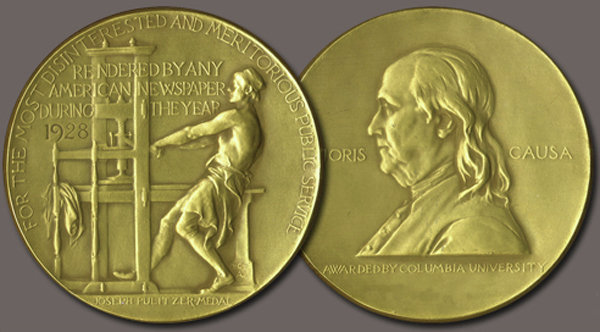Reading Time: 2 minutes
- The Pulitzer Prize is awarded for achievements in journalism (newspaper, magazine or online), literature (books, drama, history, etc.), and music composition.
- It is a US-based prize, and only US citizens are eligible to apply in literature and music.
- There are a few exceptions, however.
- For example, a work on history by a non-US citizen may be eligible, provided it is about US history.
- For Journalism, anyone can apply as long as the work appears in a US newspaper, magazine or news portal.
- There are a few reasons why Pulitzer continues to be a big deal.
- Reason 1: It is over 100 years old.
- The prize was established in 1917.
- Reason 2: It was established according to the will of a national hero, Joseph Pulitzer, who died in 1911.
- Joseph Pulitzer is credited with making America a nation of newspaper readers.
- There was a time when newspapers were meant for the rich and never told the plight of the poor.
- Joseph Pulitzer believed that newspapers need to be made accessible to ordinary people for any democracy to survive and progress.
- Reason 3: It is administered by Columbia University, the oldest institute of higher education in New York (the fifth oldest in the US).
- Reason 4: Less than 1% of the total entries receive the prize.
- Entries to the prize can be by paying a $75 fee.
- Each year more than 2500 entries are received.
- These entries are sorted by 102 judges-all luminaries in their respective fields.
- Only one prize is awarded in each of the 21 categories.
- This makes the winning rate less than one per cent (21/2500%).
- Reason 5: Controversies on ‘what kind of people get it’ help the prize remain coveted.
- Now and then, an analysis surfaces claiming that one group is favoured over the other, thereby highlighting the ‘desire’ of it.
- There is a common belief that ‘conservatives’ don’t get it enough and that there is a bias against women.
- For example, from 1991 to 2012, only 27% of winners were females.
- In another 31-year period, only five conservatives won the prize.
- Controversies around winners also help the brand recall; e.g. Alex Haley, soon after receiving the prize for the much-celebrated book Roots, was charged with plagiarism in 1977.
- Reason 1: It is over 100 years old.
Image courtesy of Picture by Wikimedia Commons
Reference shelf :

























I want to enter for The pulitzer this year or whenever .God Bless America. HOPEFULLY FOR FREE MY LUTERARY WORKS HAVE BEEN USED ACROSS TGE WORKD NOT JUST AMERICA.